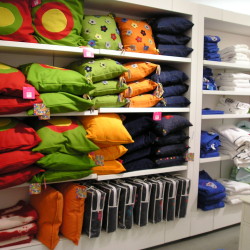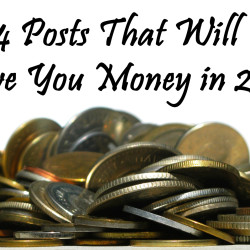What Does it Mean to be Frugal?
According to a Dictionary.com entry the word frugal is defined as economical, prudently saving and not wasteful; requiring few resources and fewer expenses.
The word frugal comes from Latin frūgālis, from frūgī useful and temperate and from frux fruit or produce and first appears in use mid-16th century. Round about that time, William Shakespeare too used the word frugal in one of his plays The Merry Wives of Windsor.
What is interesting about the etymology of the word frugal is the connection between fruitful and frugal. A frugal person, by cutting expenses, reducing waste and living in moderation, eventually becomes more fruitful with their money. Spending wisely, and spending less on certain items and services, allows you to channel those funds you saved into buying or acquiring something that is of more value to you.
The word frugal, however, has a rather negative connotation in the English language. It is sometimes confused with cheap. If you look at the definition of cheap, which is stingy and miserly, you’ll see that the intrinsic meaning of cheap has very little in common with the true meaning of frugal which is economical and not wasteful.
- John Schmoll’s article 5 Ways Frugal People Aren’t Cheap dispels some of the misconceptions about living a frugal lifestyle. For one, frugal people don’t compromise on the quality of items bought or acquired – they buy the best that they can for less. Second, they don’t always cut corners but rather weigh the pros and cons of cutting that corner versus not. Third, frugalistas are known to splash out on items they really, really want from time to time.
So if the confusion between the words frugal and cheap doesn’t necessarily stem from the definitions of those two words, how does the word frugal assume some of its negative connotation of cheap? Christopher Lasch in his essay The Culture of Consumerism presents a convincing statement that sums up the underlying reason for this in modern, and very affluent societies:
“The morality of thrift [is] hopelessly misplaced in an economy
based on immediate gratification.”
According to a Google search, the frequency of the use of the word frugal has declined steadily from the 1880s onwards. This coincides with the rise of consumerism, as well as early criticism of ‘conspicuous consumption’, a term coined by Thorstein Veblen in 1899 to describe spending on extravagant luxuries as a means of displaying one’s socio-economic status.
Whenever I think of the word frugal, the story of the hard-working ant in Proverbs 6:6-11 comes to mind. The ant worked diligently all summer, storing up food for winter. Without that provision, the ant would not survive. The grasshopper in Aesop’s fable didn’t. I used to love listening to that story as a child. As an adult, I now know why. Living life more frugally, more simply, more wisely, more economically will allow us to make those provisions for our future.
Happy Frugal Living!












Those were some very fruitful and profound thoughts you have shared about being frugal Natalija 🙂
Thanks Harjeet! ☺